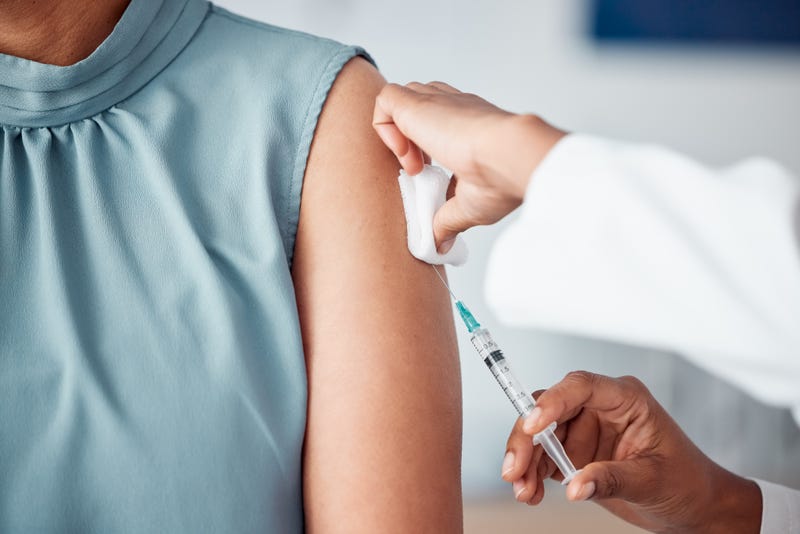
(WWJ) - Officials are urging Michiganders to get vaccinated against respiratory illnesses as cases continue to rise.
“At the end of December, trends in respiratory illness reached the highest levels so far this season at both the national level (6.8% of outpatient visits for influenza-like illness) and in Michigan (4.5%),” a release from the Michigan Department of Health and Human Services said.
Michigan tends to be a few weeks behind the national trends, which means the next few weeks could see even more people getting sick in the state. Children returning to school after the holidays could be a contributing factor, officials said.
The majority of Michigan residents aren’t up to date on vaccinations that protect against the flu, COVID-19 and RSV. 11% of Michiganders have been vaccinated for COVID-19 and 23.6% for the flu this season.
With cases expected to rise, MDHHS says it’s not too late to get the vaccines. All three can be given at the same time.
11 children have died from influenza during the 2024-25 flu season nationally. None were from Michigan.
“With many respiratory viruses circulating and Influenza cases rising, it is crucial for Michigan residents to get vaccinated to protect themselves and their families,” said Dr. Natasha Bagdasarian, chief medical executive. “COVID-19 and flu vaccines are effective at preventing serious outcomes, including hospitalization and death. It is not too late to protect yourself and your family this season.”
Of the 4 million doses of flu vaccine that were expected to be given this season, state data showed that, as of Dec. 28, approximately 2.5 million people had been vaccinated.
Vaccination rates are highest among older adults, with school-aged children and college-aged young adults having the lowest rates.
The CDC recommends annual flu shots for everyone over 6 months, with some rare exceptions.
Flu activity typically peaks in February, but can continue into May, officials said.
It takes about two weeks after vaccination for the body to build up enough immunity to protect from illness.
MDHHS says vaccination is particularly important for younger age groups as children come back to school after the holiday break. People who are at higher risk for developing serious complications, including young children, adults aged 65 years and older, people with certain medical conditions or those that are pregnant, should also ensure they are up to date.
Vaccines are covered with no out-of-pocket costs by most Michigan health plans.
More information about vaccines and respiratory illnesses can be found at Michigan.gov/HealthInsurance, Michigan.gov/COVIDFluRSV, ivaccinate.org and Michigan.gov/flufocus.
